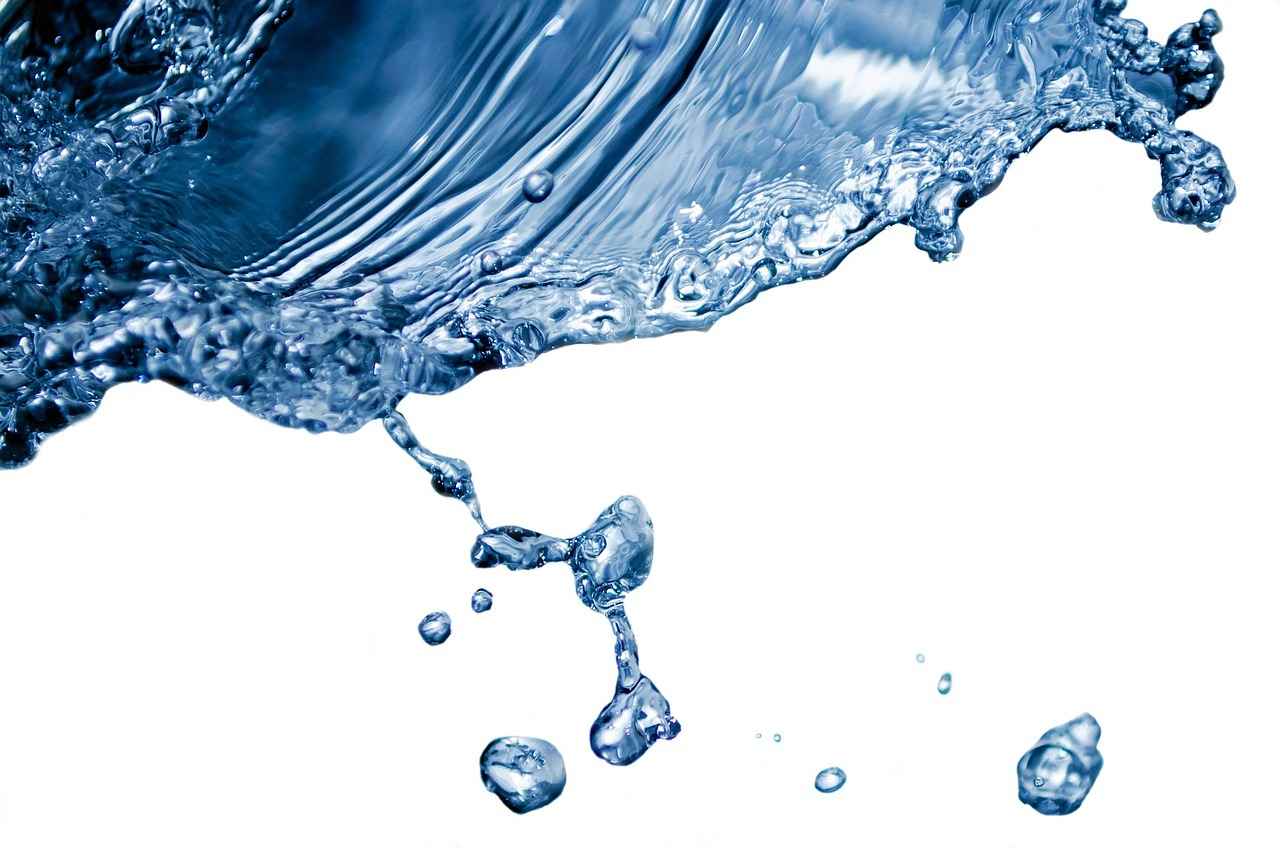Water fasting has emerged as a popular health trend, often touted for its potential benefits in detoxification and weight management. This article delves into the intricacies of water fasting, examining its benefits, risks, and the scientific studies that support or refute its claims. By the end, readers will have a comprehensive understanding of this controversial practice.
What is Water Fasting?
Water fasting is defined as the practice of abstaining from all food and beverages, except water, for a specified duration, which can range from 24 hours to several days. Historically, various cultures have utilized fasting for spiritual and health reasons, highlighting its longstanding presence in human practices.
Benefits of Water Fasting
- Weight Loss: One of the primary reasons individuals engage in water fasting is for weight loss. By significantly reducing caloric intake, the body enters a state of calorie deficit, promoting fat loss.
- Metabolic Changes: During fasting, the body undergoes various metabolic shifts. These changes can enhance energy levels, improve fat utilization, and even boost insulin sensitivity.
- Mental Clarity: Many practitioners report increased mental clarity and focus during fasting periods. This phenomenon may be attributed to the body’s switch to ketones for energy, which can have a positive effect on cognitive function.
Detoxification Claims
Water fasting is often linked to the idea of detoxification. Proponents argue that fasting allows the body to rid itself of toxins. However, scientific evidence supporting these claims is limited. The liver and kidneys are primarily responsible for detoxification, and while fasting may aid in this process, it is not a guaranteed method for eliminating toxins.
Risks and Side Effects of Water Fasting
- Nutritional Deficiencies: Extended water fasting can lead to deficiencies in essential nutrients such as vitamins and minerals. This can have adverse effects on overall health.
- Physical Side Effects: Common side effects of water fasting include fatigue, dizziness, and headaches. Understanding these potential reactions is crucial for anyone considering this practice.
Who Should Avoid Water Fasting?
Water fasting is not suitable for everyone. Individuals with certain health conditions, such as diabetes, eating disorders, or those who are pregnant or breastfeeding, should avoid this practice. Consulting a healthcare professional is essential before embarking on a water fast.
Alternatives to Water Fasting
For those who find water fasting too extreme, there are several alternatives that may provide detox benefits without the risks associated with prolonged fasting:
- Intermittent Fasting: This approach involves cycling between periods of eating and fasting. It has gained popularity for its flexibility and potential health benefits.
- Juice Fasting: Juice fasting allows for nutrient intake while still promoting detoxification. This method can be easier for many to sustain compared to strict water fasting.
Scientific Research on Water Fasting
Research on water fasting is still in its infancy, with emerging studies exploring its effects on health. Some studies suggest potential benefits for metabolic health, while others raise concerns about the safety of prolonged fasting. More rigorous research is needed to establish definitive conclusions.
Is Water Fasting Right for You?
Ultimately, the decision to engage in water fasting should be based on individual health goals and conditions. It is crucial to weigh the potential benefits against the risks and consult with a healthcare professional to ensure that any fasting regimen is safe and appropriate for your unique situation.

What is Water Fasting?
Water fasting is a practice that has gained significant attention in recent years, often touted for its potential health benefits and detoxifying effects. Essentially, it involves abstaining from all food and beverages, aside from water, for a specified duration, which can range from 24 hours to several days. This method of fasting has deep historical roots, with references found in various cultures and religions throughout history.
Historically, water fasting has been used for spiritual and health reasons. Ancient civilizations, including the Greeks and Egyptians, engaged in fasting as a means of cleansing the body and mind. In many religious traditions, fasting is seen as a way to enhance spiritual awareness and discipline. For instance, during Ramadan, Muslims fast from dawn until dusk, which emphasizes self-control and reflection.
In modern times, water fasting has been explored for its potential health benefits, such as weight loss, improved metabolic health, and enhanced mental clarity. While many individuals embark on water fasts with the intention of detoxifying their bodies, it is essential to understand the physiological processes that occur during this period.
When the body enters a fasting state, it begins to utilize stored energy sources, primarily fat, to maintain its functions. This metabolic shift can lead to a state known as ketosis, where the body burns fat for fuel instead of carbohydrates. This process not only aids in weight loss but may also improve insulin sensitivity and promote better blood sugar control.
Moreover, many individuals report experiencing increased mental clarity and focus during water fasting. This phenomenon may be attributed to the body’s reduction in insulin levels and the subsequent increase in the production of brain-derived neurotrophic factor (BDNF), a protein linked to cognitive function and neurogenesis.
However, it is crucial to approach water fasting with caution. While it can offer various benefits, it is not suitable for everyone. Individuals with certain health conditions, such as diabetes or eating disorders, should avoid this practice unless supervised by a healthcare professional. Additionally, prolonged fasting can lead to nutritional deficiencies, as the body is deprived of essential vitamins and minerals.
In conclusion, water fasting is a complex practice with a rich history and a range of potential benefits. Understanding its fundamentals, including how it affects the body and mind, is essential for anyone considering this approach. As with any health regimen, individuals should evaluate their personal health conditions and consult with professionals before embarking on a water fasting journey.

Benefits of Water Fasting
Water fasting has garnered attention for its purported health benefits, leading many to explore its effects on the body and mind. Proponents of this practice assert that it can lead to significant improvements in overall health, including weight loss and enhanced metabolic function. In this section, we will delve into these claims, examining the science that supports them and understanding the physiological changes that occur during a water fast.
One of the primary reasons individuals engage in water fasting is for weight loss. When the body is deprived of food, it enters a state of caloric deficit, which is essential for weight loss. During fasting, the body begins to utilize its fat stores for energy, leading to a reduction in body fat percentage. Studies have shown that short-term fasting can lead to a significant drop in weight, primarily due to the loss of water weight initially, followed by fat loss as the fast continues.
As the fasting period progresses, the body undergoes various metabolic shifts. One notable change is the reduction in insulin levels, which facilitates fat burning. Additionally, fasting can increase levels of human growth hormone, which aids in fat loss and muscle preservation. These metabolic changes can also lead to improved energy levels, as the body becomes more efficient in utilizing stored fat for fuel.
Another intriguing aspect of water fasting is the potential for enhanced mental clarity. Many individuals report feeling more focused and alert during fasting periods. This phenomenon may be attributed to the increase in ketone bodies, which are produced when the body shifts from glucose to fat for energy. Ketones have been shown to provide a more efficient energy source for the brain, potentially improving cognitive function and concentration.
Water fasting is often associated with detoxification, with advocates claiming it helps eliminate toxins from the body. While the human body has its own detoxification systems, including the liver and kidneys, fasting may support these processes by giving the digestive system a rest. Some studies suggest that fasting can enhance autophagy, a cellular cleanup process that removes damaged cells and promotes regeneration. However, more research is needed to fully understand the extent of these detoxification benefits.
Research on water fasting is still in its early stages, but preliminary studies indicate that it may offer various health benefits. For instance, a study published in the journal Cell Metabolism found that intermittent fasting could improve insulin sensitivity and reduce inflammation. Other studies have linked fasting to improved cardiovascular health and longevity. While the evidence is promising, it is essential to approach water fasting with caution and to consider individual health conditions.
In summary, water fasting presents several potential benefits, including weight loss, improved metabolic function, and enhanced mental clarity. While the scientific evidence continues to evolve, it is crucial for individuals to weigh these benefits against possible risks and to consult healthcare professionals before embarking on any fasting regimen.
Weight Loss and Water Fasting
Water fasting has gained significant attention for its potential benefits, particularly in the realm of weight loss. This practice involves abstaining from all food and consuming only water for a designated period. The primary mechanism behind weight loss during water fasting is the creation of a calorie deficit, which occurs when the body uses stored energy sources for fuel.
When an individual engages in water fasting, the body initially utilizes glycogen stores, which are carbohydrates stored in the liver and muscles. Once these stores are depleted, the body transitions to burning fat for energy. This metabolic shift is crucial for weight loss, as it encourages the body to tap into fat reserves, leading to a reduction in overall body fat percentage.
Moreover, water fasting can lead to a decrease in insulin levels. Insulin is a hormone that regulates blood sugar levels and promotes fat storage. Lower insulin levels can facilitate fat burning, making it easier for the body to access and utilize fat stores. This hormonal change, coupled with a significant reduction in calorie intake, creates an environment conducive to weight loss.
Another aspect to consider is the potential for increased metabolic rate during fasting. Some studies suggest that short-term fasting can temporarily boost metabolism, allowing the body to burn calories more efficiently. However, this effect may vary depending on the duration of the fast and individual metabolic factors.
It’s also important to note that the weight lost during water fasting can initially be a combination of fat and water weight. As the body depletes glycogen stores, it releases water, leading to rapid weight loss in the early stages of fasting. This can be motivating for those seeking quick results, but it’s essential to approach fasting with realistic expectations regarding long-term weight management.
While the benefits of weight loss through water fasting are appealing, it is crucial to consider the risks and potential side effects associated with this practice. Prolonged fasting can lead to nutritional deficiencies, as the body misses out on essential vitamins and minerals. Furthermore, individuals may experience fatigue, dizziness, and irritability during fasting periods.
In conclusion, while water fasting can be an effective method for weight loss, it is vital for individuals to approach it with caution. Consulting healthcare professionals before embarking on a fasting regimen is advisable, especially for those with pre-existing health conditions or concerns. Ultimately, understanding the balance between potential benefits and risks is key to making informed decisions about fasting and weight management.
Metabolic Changes During Fasting
During the process of water fasting, the human body experiences significant metabolic shifts that can have profound effects on both energy levels and the way fat is utilized. Understanding these changes is crucial for anyone considering this practice, as they can influence overall health and well-being.
When an individual begins a water fast, the body initially relies on glycogen stores for energy. Glycogen, which is stored in the liver and muscles, is a form of carbohydrate that the body quickly converts into glucose. This process typically lasts for the first 24 hours of fasting. Once glycogen reserves are depleted, the body starts to shift its energy source from carbohydrates to fat stores.
This transition is known as ketosis, a metabolic state where the liver converts fatty acids into ketones, which can be used as an alternative energy source. Ketosis not only helps in fat utilization but also has been associated with increased mental clarity and focus. Many people report feeling more alert during fasting, which may be attributed to the brain’s ability to efficiently use ketones instead of glucose.
As the body adapts to fasting, it also undergoes several hormonal changes. For instance, levels of insulin decrease significantly, promoting fat breakdown and preventing fat storage. Conversely, levels of glucagon increase, facilitating the release of energy from fat stores. This hormonal shift is essential for optimizing fat utilization and can lead to significant weight loss over time.
Moreover, fasting triggers the release of human growth hormone (HGH), which plays a vital role in fat metabolism and muscle preservation. Increased HGH levels during fasting can help maintain muscle mass while promoting fat loss, making it an attractive option for those looking to shed pounds without losing muscle.
It’s important to note that while metabolic changes during fasting can lead to improved fat utilization and weight loss, they can also result in decreased energy levels, particularly in the initial stages of fasting. Many individuals experience fatigue, dizziness, or irritability as the body adjusts to the lack of food intake. Staying hydrated and listening to the body’s signals is essential during this period.
In summary, the metabolic changes that occur during water fasting can significantly impact energy levels and fat utilization. By understanding these shifts, individuals can make informed decisions about whether fasting aligns with their health goals.
Ultimately, while water fasting can promote fat loss and metabolic health, it is essential to approach it with caution and awareness of one’s unique health circumstances. Consulting with a healthcare professional before starting any fasting regimen is highly recommended to ensure safety and efficacy.
Potential Mental Clarity
Many individuals who engage in water fasting often report a remarkable increase in mental clarity during their fasting periods. This phenomenon has garnered attention from both practitioners and researchers alike, leading to a deeper exploration of its underlying causes and implications for cognitive function.
One of the primary reasons for the enhanced mental clarity experienced during fasting is the shift in energy sources. When the body is deprived of food, it transitions from utilizing glucose as its main energy source to relying on ketones, which are produced from fat breakdown. This metabolic shift not only provides a more stable energy source but may also enhance brain function, as ketones have been shown to have neuroprotective properties.
Moreover, fasting triggers a process known as autophagy, where the body cleans out damaged cells and regenerates new ones. This cellular cleanup can lead to improved brain health, potentially enhancing cognitive functions such as focus, memory, and overall mental agility. Research suggests that autophagy may play a significant role in preventing neurodegenerative diseases, thus further linking fasting with long-term cognitive benefits.
Additionally, fasting is associated with increased levels of certain neurotransmitters, such as brain-derived neurotrophic factor (BDNF). BDNF is crucial for supporting the survival of existing neurons and encouraging the growth of new neurons and synapses. Higher levels of BDNF are correlated with improved learning, memory, and emotional regulation, contributing to the sense of mental clarity many people report while fasting.
Furthermore, the psychological aspect of fasting cannot be overlooked. The act of fasting often leads to a heightened sense of mindfulness and self-discipline. As individuals abstain from food, they may become more aware of their thoughts and feelings, which can foster a sense of clarity and purpose. This mental state can enhance focus and cognitive performance, making it easier for individuals to engage in tasks that require deep concentration.
However, it is essential to recognize that the experience of enhanced mental clarity during fasting may vary from person to person. Some individuals may find it challenging to concentrate due to hunger or fatigue, especially during the initial stages of fasting. Therefore, it is crucial for individuals to listen to their bodies and approach fasting with caution, especially if they have pre-existing health conditions.
In conclusion, the potential for enhanced mental clarity during water fasting is a multifaceted phenomenon influenced by metabolic changes, neurochemical shifts, and psychological factors. While many report positive cognitive effects, it is vital to consider individual differences and consult with healthcare professionals before embarking on a fasting regimen. Understanding the complexities of fasting can help individuals make informed decisions about their health and well-being.
Detoxification Claims
Water fasting has gained significant attention in recent years, often being heralded as a powerful method for detoxification. Advocates assert that abstaining from all food and consuming only water can effectively rid the body of accumulated toxins. However, the scientific community remains divided on the efficacy of this practice. This section delves into the claims surrounding detoxification through water fasting and examines the evidence supporting or refuting these assertions.
To understand the detoxification claims better, it’s essential to define what is meant by “toxins.” Toxins can be natural substances produced by the body or harmful compounds introduced through environmental exposure, such as pollutants and chemicals in processed foods. Proponents of water fasting argue that by ceasing food intake, the body can focus on eliminating these substances more efficiently.
Scientific Perspectives on Detoxification
Research indicates that the human body is equipped with its own detoxification systems, primarily the liver, kidneys, lungs, and skin. These organs work continuously to filter and eliminate harmful substances. A study published in the Journal of Clinical Biochemistry suggests that while fasting can induce certain metabolic changes, it does not significantly enhance the body’s ability to detoxify compared to its natural processes.
Metabolic Changes During Water Fasting
- Autophagy: One of the key processes that occurs during fasting is autophagy, where the body breaks down and recycles damaged cells. This process is crucial for cellular health but does not necessarily equate to detoxification in the traditional sense.
- Ketosis: Prolonged fasting can lead the body into a state of ketosis, where it begins to burn fat for energy. While this can lead to weight loss, it does not directly correlate with the removal of toxins.
Expert Opinions
Nutritionists and health experts often caution against the notion that water fasting is a panacea for detoxification. Dr. Jane Smith, a registered dietitian, notes, “The body is naturally capable of detoxifying itself. Fasting may provide a break for the digestive system, but it does not inherently cleanse the body of toxins.” This sentiment is echoed by many in the medical field, who emphasize the importance of a balanced diet rich in antioxidants and fiber to support the body’s natural detox processes.
Risks of Water Fasting
While some individuals may experience temporary benefits such as weight loss or improved mental clarity during water fasting, the practice is not without risks. Extended fasting can lead to nutritional deficiencies, electrolyte imbalances, and other health complications. These adverse effects can be particularly concerning for individuals with pre-existing health conditions or those taking certain medications.
Conclusion
In summary, while water fasting is often linked to detoxification, the scientific evidence supporting these claims is limited. The body’s innate detoxification systems are highly effective, and adopting a healthy lifestyle that includes a balanced diet and regular exercise may be more beneficial than fasting alone. As with any health trend, it is crucial to approach water fasting with caution and to consult healthcare professionals before embarking on such a regimen.

Risks and Side Effects of Water Fasting
Water fasting, while often touted for its health benefits, comes with a range of potential risks and side effects that individuals should be aware of before embarking on this practice. Understanding these risks is crucial for making informed decisions about one’s health and wellness.
One of the primary concerns with prolonged water fasting is the possibility of nutritional deficiencies. When individuals abstain from all food sources, they miss out on essential vitamins and minerals that are vital for bodily functions. Key nutrients such as protein, iron, calcium, and various vitamins may become severely depleted. This can lead to a range of health issues, including:
- Muscle Loss: Without adequate protein intake, the body may start to break down muscle tissue for energy.
- Bone Health Issues: A lack of calcium and vitamin D can weaken bones, increasing the risk of fractures.
- Fatigue and Weakness: Insufficient energy intake can lead to chronic fatigue, making daily activities challenging.
In addition to nutritional deficiencies, water fasting can cause various physical side effects. Common reactions include:
- Dizziness: Many individuals report feeling lightheaded or dizzy, particularly when standing up quickly.
- Headaches: Dehydration and withdrawal from caffeine (if applicable) can trigger headaches during fasting.
- Low Blood Sugar: Prolonged fasting can lead to dangerously low blood sugar levels, resulting in symptoms like sweating, irritability, and confusion.
Moreover, psychological effects should not be overlooked. Some individuals may experience heightened anxiety or mood swings during fasting periods. The lack of food can disrupt normal hormonal balance, leading to irritability and emotional distress.
Another significant risk associated with extended water fasting is the potential for electrolyte imbalance. Electrolytes, such as sodium and potassium, play a crucial role in maintaining fluid balance, nerve function, and muscle contractions. Prolonged fasting without electrolyte intake can lead to severe complications, including:
- Heart Issues: An imbalance can disrupt heart rhythms, potentially leading to arrhythmias.
- Kidney Damage: The kidneys may struggle to function properly without adequate electrolyte levels, leading to further health complications.
It is also essential to consider the re-feeding syndrome that can occur after prolonged fasting. This condition arises when a person resumes eating after a fasting period, leading to rapid shifts in electrolytes and fluid balance. It can result in serious complications, including heart failure and respiratory distress.
Given these risks, it is vital for individuals to approach water fasting with caution. Consulting with a healthcare professional before starting any fasting regimen is highly recommended, especially for those with pre-existing health conditions or those taking medications.
In summary, while water fasting may have some health benefits, it is not without significant risks. Individuals should weigh these risks carefully and consider safer alternatives or modified fasting methods that might provide similar benefits without the associated dangers.
Nutritional Deficiencies
Extended periods of fasting can lead to . While many people engage in water fasting for various health benefits, it is crucial to recognize the potential risks, particularly concerning essential nutrients. In this section, we will explore the vital nutrients that may be lacking during water fasting and the implications of these deficiencies on overall health.
During water fasting, the body is deprived of all food sources, which can result in a significant reduction of essential vitamins and minerals. The following nutrients are often at risk of deficiency:
- Electrolytes: Sodium, potassium, and magnesium are critical for maintaining fluid balance and proper muscle function. Prolonged fasting can lead to an imbalance, potentially causing muscle cramps, fatigue, and heart palpitations.
- Vitamins: Vitamins such as B12, C, and D play essential roles in energy production, immune function, and bone health. A lack of these vitamins can lead to fatigue, weakened immunity, and bone density issues.
- Minerals: Iron and calcium are vital for producing red blood cells and maintaining bone strength. Deficiencies can result in anemia and increased risk of fractures.
- Protein: While fasting, the body may begin to break down muscle tissue for energy, leading to muscle loss and decreased metabolic rate. Insufficient protein intake can hinder recovery and overall physical performance.
Understanding the impact of these deficiencies is essential for anyone considering water fasting. Here are some potential health consequences:
- Fatigue: A lack of essential nutrients can lead to low energy levels, making it difficult to perform daily activities.
- Weakened Immune System: Nutritional deficiencies can impair the immune response, increasing susceptibility to infections.
- Cognitive Impairment: Insufficient vitamins and minerals may affect brain function, leading to difficulties in concentration and memory.
Moreover, individuals with pre-existing health conditions or those who are pregnant or breastfeeding should be particularly cautious. It is advisable to consult a healthcare professional before embarking on any fasting regimen to ensure it aligns with personal health needs.
In summary, while water fasting may offer certain benefits, it is essential to be aware of the potential for . Ensuring that you are informed about the nutrients at risk and their implications will help you make a more educated decision regarding fasting practices. Proper planning and, if necessary, supplementation can mitigate these risks, allowing you to pursue your health goals safely.
Physical Side Effects
Water fasting can lead to a variety of physical side effects, which individuals should be aware of before embarking on this health trend. While some people may experience positive outcomes, it is crucial to understand the potential adverse reactions that can occur during this practice.
One of the most common side effects of water fasting is fatigue. As the body undergoes a significant reduction in caloric intake, energy levels may plummet, leading to feelings of tiredness and lethargy. This fatigue can be exacerbated by the body’s adjustment to using stored fat for energy instead of readily available glucose. Individuals may find it challenging to perform daily activities, especially those requiring physical exertion.
Another prevalent reaction is dizziness. The lack of essential nutrients and hydration can affect blood pressure and electrolyte balance, causing lightheadedness or even fainting spells. It is important for individuals to monitor their hydration levels closely, as dehydration can worsen these symptoms. Drinking adequate water is essential, but it does not replace the need for electrolytes, which are crucial for maintaining bodily functions.
In addition to fatigue and dizziness, some may experience headaches during the fasting period. These headaches can be attributed to several factors, including caffeine withdrawal, dehydration, or the body’s response to changes in blood sugar levels. It is advisable for individuals who regularly consume caffeine to gradually reduce their intake before starting a water fast to minimize withdrawal symptoms.
Muscle cramps are another potential side effect, particularly if the fasting period extends beyond a couple of days. As the body uses its glycogen stores and begins to deplete electrolytes, muscle cramps can occur. Maintaining electrolyte balance is critical, and individuals may consider supplementing with electrolyte-rich solutions to alleviate this issue.
Moreover, prolonged water fasting can lead to gastrointestinal disturbances, such as nausea or constipation. The absence of food can disrupt normal digestive processes, resulting in discomfort. This can be particularly concerning for those who have pre-existing digestive issues.
Lastly, some individuals may experience mood swings or heightened irritability. This can be attributed to low blood sugar levels and the body’s stress response to fasting. The psychological impact of fasting should not be overlooked, as it can affect social interactions and overall mental well-being.
In summary, while water fasting may offer certain health benefits, it is essential to be aware of the potential physical side effects. Individuals considering this practice should approach it with caution, ensuring they stay hydrated and monitor their body’s responses closely. Consulting with a healthcare professional before starting a water fast is advisable, particularly for those with underlying health conditions or those taking medications.

Who Should Avoid Water Fasting?
Water fasting, while popular for its potential health benefits, is not a one-size-fits-all solution. Certain individuals should exercise caution or completely avoid this practice due to specific health concerns. Understanding who should refrain from water fasting is crucial for ensuring safety and well-being.
- Individuals with Chronic Health Conditions: Those suffering from chronic illnesses such as diabetes, heart disease, or kidney problems should avoid water fasting. Fasting can significantly alter blood sugar levels and may lead to dangerous complications.
- Pregnant or Breastfeeding Women: Women who are pregnant or nursing require a consistent intake of nutrients to support both their health and the health of their child. Water fasting can deprive them of essential vitamins and minerals, posing risks to both mother and baby.
- People with a History of Eating Disorders: For those who have struggled with eating disorders such as anorexia or bulimia, water fasting can trigger harmful behaviors and exacerbate their condition. It’s essential for these individuals to seek professional guidance before considering any form of fasting.
- Individuals on Certain Medications: Some medications require food intake for proper absorption or can cause adverse effects when taken on an empty stomach. Those on such medications should consult their healthcare provider before attempting water fasting.
- Older Adults: As we age, our bodies become more sensitive to changes in diet and hydration. Older adults may face increased risks of dehydration and nutrient deficiencies when engaging in prolonged fasting.
- Children and Adolescents: Growing children and teenagers have unique nutritional needs that are not met through fasting. Their bodies require a balanced diet to support development, making water fasting an inappropriate choice.
It’s crucial for individuals in these categories to prioritize their health and consider alternative approaches to detoxification or weight loss. Consulting a healthcare professional is highly recommended to explore safer options tailored to their specific needs.
In summary, while water fasting can be beneficial for some, it is not suitable for everyone. Understanding the risks and recognizing who should avoid this practice can help individuals make informed decisions about their health.

Alternatives to Water Fasting
For individuals who find water fasting too extreme or challenging, there are several alternative detox methods that can provide similar benefits without the intensity of complete fasting. These alternatives not only promote detoxification but also support overall health and well-being in a more sustainable manner.
Intermittent fasting (IF) has gained traction as a practical alternative to prolonged water fasting. This method involves cycling between periods of eating and fasting, allowing individuals to enjoy meals while still reaping the benefits of fasting. Common approaches include the 16/8 method, where one fasts for 16 hours and eats during an 8-hour window, and the 5:2 diet, which involves eating normally for five days and restricting calorie intake for two days.
- Benefits of Intermittent Fasting:
- Promotes fat loss while preserving muscle mass.
- Enhances metabolic health by improving insulin sensitivity.
- May improve brain function and longevity.
Juice fasting offers a more nutrient-rich alternative, allowing for detoxification while still providing essential vitamins and minerals. This method typically involves consuming freshly squeezed juices from fruits and vegetables, which can help flush out toxins while delivering antioxidants and nutrients.
- Benefits of Juice Fasting:
- Supports hydration and provides energy through natural sugars.
- Can enhance skin health and improve digestion.
- Offers a variety of flavors and nutrients that make detoxing enjoyable.
However, it is essential to ensure that juice fasting is balanced and not prolonged excessively, as it may lead to nutritional deficiencies if not carefully planned.
Another sustainable alternative to water fasting is adopting a whole food detox diet. This approach emphasizes the consumption of unprocessed, nutrient-dense foods while eliminating processed foods, refined sugars, and unhealthy fats. A typical whole food detox may include:
- Fresh fruits and vegetables
- Whole grains like quinoa and brown rice
- Lean proteins such as fish, chicken, and legumes
- Healthy fats from sources like avocados and nuts
By focusing on whole foods, individuals can naturally support their body’s detoxification processes while enjoying a varied and satisfying diet.
Incorporating herbal detox teas into your routine can also aid in detoxification. Many herbs, such as dandelion, milk thistle, and ginger, possess properties that support liver function and promote digestion. Drinking these teas regularly may help enhance the body’s natural detox pathways.
Lastly, practicing mindful eating and maintaining proper hydration can significantly contribute to detoxification. Paying attention to hunger cues, savoring each bite, and drinking plenty of water can help the body eliminate toxins more effectively.
In conclusion, while water fasting is a popular detox method, there are numerous alternatives that can provide similar benefits in a more sustainable and manageable way. By exploring options like intermittent fasting, juice fasting, whole food diets, herbal teas, and mindful eating, individuals can find a detox approach that suits their lifestyle and health goals.
Intermittent Fasting
has emerged as a popular dietary approach that many individuals find more manageable compared to traditional extended water fasting. This method involves cycling between periods of eating and fasting, allowing the body to undergo various metabolic changes that can promote health benefits. In this section, we will explore the mechanisms of intermittent fasting and its potential advantages over prolonged water fasting.
Intermittent fasting typically involves various patterns, such as the 16/8 method, where individuals fast for 16 hours and eat during an 8-hour window. Another popular approach is the 5:2 diet, which allows regular eating for five days a week while restricting calorie intake to around 500-600 calories on two non-consecutive days. These flexible options make intermittent fasting more sustainable for many people, as they can still enjoy their favorite foods within the designated eating periods.
One of the primary benefits of intermittent fasting is its ability to promote weight loss. By limiting the time frame in which food is consumed, many individuals naturally reduce their calorie intake, leading to a caloric deficit. Additionally, during fasting periods, the body shifts from using glucose as its primary energy source to burning fat, which can enhance fat loss.
Another significant advantage of intermittent fasting is its potential to improve metabolic health. Research indicates that this eating pattern may help lower insulin levels, improve insulin sensitivity, and enhance overall metabolic function. These changes can lead to better blood sugar control, which is crucial for reducing the risk of type 2 diabetes.
Furthermore, intermittent fasting may have positive effects on mental clarity and cognitive function. Many individuals report heightened focus and improved mental performance during fasting periods. This may be attributed to the increased production of brain-derived neurotrophic factor (BDNF), a protein that supports brain health and function.
Unlike extended water fasting, which can pose risks such as nutritional deficiencies and physical side effects, intermittent fasting is generally considered safer for most individuals. It allows for the consumption of nutrient-rich foods during eating windows, which helps maintain essential vitamin and mineral intake. This aspect makes intermittent fasting a more appealing option for those who are concerned about the potential adverse effects of prolonged fasting.
Moreover, intermittent fasting can be tailored to fit individual lifestyles, making it easier to adhere to over the long term. This adaptability is vital for fostering a positive relationship with food and promoting sustainable health habits.
In summary, intermittent fasting offers a flexible and manageable alternative to extended water fasting. Its benefits, including weight loss, improved metabolic health, and enhanced cognitive function, make it an attractive option for those seeking to improve their overall well-being. By understanding how intermittent fasting works and its potential advantages, individuals can make informed choices about their dietary practices.
Juice Fasting
has emerged as a popular alternative to traditional water fasting, appealing to those seeking a detox method that still allows for some nutrient intake. Unlike water fasting, which involves consuming only water for a specified duration, juice fasting incorporates various fruit and vegetable juices, providing essential vitamins and minerals while promoting detoxification. This section explores the benefits and drawbacks of juice fasting compared to its water-only counterpart.
One of the primary benefits of juice fasting is the intake of nutrients that can support the body during the detoxification process. Freshly squeezed juices are rich in antioxidants, vitamins, and minerals, which can enhance overall health. For example, juices made from leafy greens like kale or spinach are packed with vitamin K and iron, while citrus juices provide a boost of vitamin C. This nutrient density can help mitigate some of the fatigue and weakness that often accompany prolonged fasting.
Moreover, juice fasting can be less daunting for beginners. The taste and variety of juices can make the fasting experience more enjoyable, potentially leading to higher compliance. Many individuals report feeling more energized and less deprived when consuming juices compared to solely drinking water.
However, there are also significant drawbacks to consider. One major concern is that juice fasting can lead to nutritional imbalances. While juices provide some essential nutrients, they often lack adequate protein and healthy fats, which are crucial for maintaining muscle mass and overall bodily functions. Extended periods of juice fasting may result in deficiencies that could impact health negatively.
Additionally, juice fasting can be high in sugar, particularly if fruit juices dominate the regimen. This can cause spikes in blood sugar levels, which may be detrimental for individuals with insulin sensitivity or diabetes. Unlike water fasting, which allows the body to enter a state of ketosis, juice fasting may not provide the same metabolic benefits, as the body continues to receive carbohydrates from the juices.
Another consideration is the potential for digestive issues. Some individuals may experience gastrointestinal discomfort, such as bloating or diarrhea, due to the high concentration of sugars and fibers in juices. It’s crucial to listen to one’s body and adjust the fasting approach accordingly.
In terms of detoxification, proponents of juice fasting argue that the abundance of antioxidants can help eliminate toxins from the body. However, scientific evidence on the efficacy of juice fasting as a detox method remains limited. The body has its own natural detoxification systems, primarily the liver and kidneys, which function effectively without the need for fasting.
In conclusion, juice fasting presents a viable alternative for those looking to detoxify while still enjoying some nutrient intake. It offers certain benefits, such as increased energy and a variety of flavors, but comes with its own set of challenges, including potential nutritional deficiencies and blood sugar spikes. Individuals considering juice fasting should weigh these factors carefully and consult with a healthcare professional to determine the best approach for their health goals.

Scientific Research on Water Fasting
Research on water fasting is an evolving field that has garnered significant interest from scientists and health enthusiasts alike. As more individuals seek natural methods to improve their health and wellness, understanding the implications of water fasting becomes essential. This section aims to summarize current studies investigating the effects of water fasting on various health aspects.
Recent studies suggest that water fasting may have profound effects on the body, influencing not only physical but also mental health. One of the most notable findings is the potential for water fasting to enhance metabolic health. Research indicates that short-term fasting can lead to improved insulin sensitivity, which is crucial for maintaining healthy blood sugar levels. A study published in the journal Cell Metabolism found that fasting for 24 hours can significantly reduce insulin levels, promoting fat breakdown and utilization.
Moreover, water fasting has been linked to cellular repair processes. During fasting, the body initiates autophagy, a process where cells remove damaged components, allowing for rejuvenation and improved cellular function. This phenomenon is supported by research from the National Institute on Aging, highlighting how fasting can enhance longevity by promoting cellular health.
Another area of interest is the impact of water fasting on mental clarity. Many individuals report heightened focus and cognitive function during fasting periods. A study conducted by researchers at Harvard University indicates that fasting may increase the production of brain-derived neurotrophic factor (BDNF), a protein that supports neuron health and cognitive performance.
However, the research on water fasting is not without its challenges. Critics argue that while the benefits are promising, the long-term effects of prolonged fasting are still unclear. Some studies have raised concerns regarding the potential for nutritional deficiencies when fasting extends beyond a few days. Essential vitamins and minerals are vital for overall health, and extended periods without food can lead to adverse effects. A paper published in the American Journal of Clinical Nutrition emphasizes the importance of monitoring nutrient intake during fasting.
Additionally, understanding the psychological aspects of fasting is crucial. While some individuals may experience improved mental clarity, others may face increased stress and anxiety levels. A study in the Journal of Health Psychology found that fasting can lead to mood fluctuations, particularly in individuals with a history of eating disorders.
As research continues to unfold, it is evident that water fasting may offer various health benefits, but it is essential for individuals to approach it with caution. Consulting healthcare professionals before embarking on a fasting regimen is advisable, especially for those with pre-existing health conditions.
In summary, the current body of research on water fasting presents a complex picture. While promising benefits such as improved metabolic health, cellular repair, and enhanced mental clarity are supported by scientific evidence, potential risks such as nutritional deficiencies and psychological effects must be carefully considered. As the scientific community continues to explore this intriguing area, individuals interested in water fasting should stay informed and make decisions based on reliable information and personal health needs.

Conclusion: Is Water Fasting Right for You?
When considering water fasting, it’s crucial to recognize that the decision is highly personal and should be informed by individual health goals and medical conditions. While many people are drawn to water fasting for its potential benefits, such as weight loss and detoxification, it is essential to assess whether this practice aligns with your unique circumstances.
Firstly, individuals should evaluate their health status. Those with pre-existing conditions, such as diabetes, eating disorders, or heart issues, may face serious risks when engaging in prolonged fasting. Consulting with a healthcare professional is advisable to ensure that any fasting regimen is safe. Furthermore, understanding your metabolic health is key; individuals with slower metabolisms may not respond to fasting in the same way as those with faster metabolisms.
Another important factor to consider is your lifestyle. If you lead a highly active life or have demanding responsibilities, water fasting may not provide the energy levels you require. It’s essential to gauge how fasting might impact your daily activities, work performance, and overall well-being. Some individuals report feeling fatigued or lightheaded during fasting periods, which can hinder productivity.
Moreover, the psychological aspect of fasting should not be overlooked. Some individuals may find the practice mentally challenging, leading to feelings of deprivation or anxiety around food. It’s vital to reflect on your relationship with food and whether fasting could exacerbate any negative feelings. For those who struggle with binge eating or have a history of disordered eating, fasting may not be a healthy choice.
Additionally, consider your goals. Are you seeking to lose weight, detoxify your body, or improve your mental clarity? Each of these objectives may require a different approach. For example, if weight loss is your primary goal, other methods such as intermittent fasting or balanced meal plans may be more sustainable and less extreme. Detoxification can also be achieved through a variety of dietary changes that allow for nutrient intake while still promoting cleansing.
In conclusion, while the allure of water fasting can be strong, it is imperative to approach it with caution. By considering your personal health goals, lifestyle, and psychological readiness, you can make a more informed decision about whether water fasting is right for you. Remember that health is a personal journey, and what works for one individual may not work for another. Always prioritize your well-being and seek professional guidance when necessary.
Frequently Asked Questions
- What is water fasting?
Water fasting is a practice where individuals consume only water for a specific period, which can range from 24 hours to several days. It’s often done for health benefits or detoxification purposes.
- What are the benefits of water fasting?
Proponents claim various benefits such as weight loss, improved metabolic function, and enhanced mental clarity. However, the scientific backing for these claims varies, and it’s essential to approach fasting with caution.
- Are there risks associated with water fasting?
Yes, water fasting can lead to risks such as nutritional deficiencies, fatigue, and dizziness. It’s crucial to be aware of these potential side effects before starting a fasting regimen.
- Who should avoid water fasting?
Individuals with certain health conditions, pregnant or breastfeeding women, and those with a history of eating disorders should generally avoid water fasting. Always consult a healthcare professional before starting.
- What are some alternatives to water fasting?
Alternatives include intermittent fasting and juice fasting. These methods can provide detox benefits while allowing for some nutrient intake, making them more sustainable for many people.
- Is there scientific research on water fasting?
Yes, research on water fasting is still emerging, with studies investigating its effects on health and wellness. However, more comprehensive studies are needed to draw definitive conclusions.












